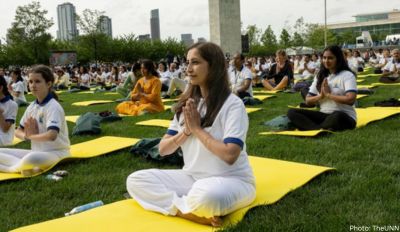A recent study unveiled during the annual gathering of the American Society for Nutrition has pinpointed eight pivotal lifestyle factors that have the potential to significantly extend an individual’s lifespan. Drawing insights from an extensive analysis encompassing 719,147 participants enrolled in the Million Veteran Program, the research underscores the benefits of engaging in regular physical activity, cultivating robust social connections, practicing sound sleep routines, abstaining from excessive alcohol consumption, adhering to a wholesome dietary regimen, refraining from smoking, effectively managing stress levels, and steering clear of opioid dependence, all of which are correlated with a noteworthy increase in longevity.

In accordance with the study’s findings, individuals who wholeheartedly embraced all eight of these behaviors from the age of 40 onward were rewarded with a substantial boost in their lifespans, as compared to their counterparts who remained aloof from these practices. The upshot was particularly remarkable, with a remarkable lifespan augmentation of around 21 years observed among women and an even more impressive extension of 24 years among men. Furthermore, those individuals who rigorously adhered to the complete spectrum of these practices exhibited a remarkable 13% reduction in the risk of mortality during the duration of the study, in stark contrast to those who chose to forgo these habits entirely.
However, the study also underscored that there are advantages to be reaped even from the partial adoption of these behaviors, or commencing their practice subsequent to the age of 40. This underscores the study’s emphasis on the importance of inculcating these practices early on, to facilitate more favorable health outcomes as individuals age.
While all eight practices were underscored as critical pillars for fostering longevity, specific behaviors such as smoking, opioid consumption, and a sedentary lifestyle were intrinsically linked to an escalated jeopardy of untimely death. This poignant revelation underlines the need to prioritize these practices as a means to mitigate the looming threat of premature mortality.
Lending his expertise to the discourse, Dr. Patrick Coll, a distinguished geriatrician and the medical director for senior health at the esteemed University of Connecticut, accentuated the pivotal role of physical activity in the context of aging individuals. He expounded upon the manifold benefits of incorporating regular exercise routines, encompassing elements of resistance training, aerobic exercises, and exercises aimed at enhancing balance and flexibility. Such holistic physical engagement, he asserted, augments muscular strength and serves as an efficacious deterrent against potentially perilous falls.
In concurrence with its comprehensive findings, the study acknowledged that not all individuals enjoy uniform access to these propitious practices, owing to factors such as socioeconomic status, geographical location, and cultural disparities. The multifaceted inequities ingrained within society can exert a palpable impact upon an individual’s capacity to wholeheartedly embrace these transformative lifestyle shifts. Moreover, the researchers reiterated that the results gleaned from the study were of an observational nature and, thus, did not lay the foundation for causal relationships to be established with certitude.
The study’s profound insights contribute substantively to the burgeoning domain of research that endeavors to decipher the intricate nexus between lifestyle choices and the duration of one’s lifespan. Nevertheless, the researchers remain acutely aware of the imperative need for further in-depth investigations to definitively unravel the intricate tapestry of causation that underlies these associations.











